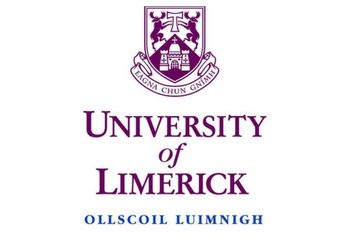

University of Limerick - UL
speciality: Communication
What is a Communications degree?
Communications is a universal degree, which explores the traditional forms of communication such as verbal, physical, visual and written communication but also extends beyond that to cover mass communication and social media. There are different types of communications degrees depending on the degree level.
Overall, Communications focuses on teaching effective communication through social media, web, print, mass media and verbal communication. However, there are two types of Communications degrees that exist. For instance, a Bachelor of Arts in Communications in the US is focused on preparing students for careers that are connected to writing, marketing, promotions, journalism and public relations. In contrast, Bachelor of Science in Communications is dedicated to the technology used in the science behind modern communication and prepares students for careers in production or sound engineering.
A Communications degree teaches students about how media and communication influences cultures, societies and people’s identities. It involves a significant amount of critical writing and research and covers different disciplines such as journalism, public relations, entertainment production, marketing, event planning and so many more disciplines, which are somehow connected to exchanging information and conveying messages. There are also different specialization options associated with this degree, including political communication, mass media, journalism, health communication, etc.
It is worth noting that a Communications degree has many intersection points with psychology, sociology, linguistics and in some cases politics.
Benefits of a Communications degree
The main benefit of a Communications degree is its universal nature. It applies to almost any subject or professional setting. For example, some of the top careers in the field of Communications include announcers, art directors, editors, broadcast and sound engineering technicians, reporters, correspondents, broadcast analysts, technical writers, writers and authors, interpreters, translators, etc. Therefore, it keeps students’ career options open and doesn’t require them to have a predetermined career path that they want to follow.
Communications degrees prepare students to make an impact from the start of their careers unlike other degrees, which require further training. This is possible thanks to the multitude of professionally accredited degrees in Communications, which develop students’ abilities based on the established standards in the field. Moreover, there are many Communications courses, which offer work placement opportunities that enable students to gain the required professional skills before they have even started their career.
Another benefit associated with Communications degrees is the fact that they develop students’ written and verbal communication skills significantly.
A major advantage of Communications over other degrees is that in most cases there are no prerequisites required to study Communications.
Communications degree structure
The duration of a Communications degree varies depending on the country and degree level. For example, Higher Education Institutions in the UK offer 3-year Bachelor’s courses. In some cases, the course may extend to four years if students are given the opportunity to spend a year abroad or in industry between the second and third year through a sandwich course. Bachelor’s degrees in Communications in the US usually take around four years to complete.
Over the duration of a Bachelor’s Communications degree, students are expected to learn and be able to apply the established communications theories by developing the technical skills required to work in a professional setting. In the first year of their studies, students learn predominantly how media and communication influences cultures, societies and people’s identities. Optional modules may introduce them to professional communication, journalism, documentary, film-making, marketing, etc. In addition to the introductory topics, this degree allows students to learn about more complex areas of communications such as interpersonal relations, brand management and linguistics at a later stage. For instance, the second and third years enable students to get a deeper understanding of theoretical concepts related to media and culture and develop practical skills in research and communications. Additionally, students may have the opportunity to take optional modules and pursue their interests in different areas related to Communications such as gender, race, youth, culture, digital media, political communication, public relations, etc.
The most common duration of a Master’s degree in Communications is between 1 and 2 years depending on the mode of study (full-time or part-time) and country.
PhD and MPhil degrees in Communications require students to dedicate anywhere between 3 and 6 years to their studies depending on the mode and country of study.
2 Student Reviews
Filter reviews-
Media and ...1 month ago
 JohnIEUl Life in media culture
JohnIEUl Life in media cultureEntering the first year of Media Culture studies at the University of Limerick feels like embarking on a thrilling adventure, where every lecture is a treasure map and every seminar is a chance to uncover buried narratives. Here, amidst the bustling campus life, I find myself armed with nothing but a compass of curiosity and a ship of imagination, ready to navigate the uncharted waters of media exploration.
The lecturers within the Media Culture faculty aren’t just teachers; they’re seasoned sailors, guiding us through unexplored territories with a mix of knowledge and enthusiasm. Their lectures aren’t just classes; they’re captivating stories that transport us into the heart of media theory and practice. Each seminar feels like setting sail on a new quest, as we decode the language of images and navigate the ever-changing currents of digital culture together.
What truly makes the University of Limerick stand out is its vibrant community of media enthusiasts. Engaging in lively debates with fellow adventurers from diverse backgrounds is like gathering around a campfire, sharing stories and insights from our own journeys through the media landscape. Together, we embark on collaborative projects, swap ideas, and navigate the complexities of modern communication with a sense of camaraderie and excitement.
But the adventure doesn’t end in the classroom. The Media Culture program offers a treasure trove of opportunities for hands-on exploration and discovery. From internships and field trips to workshops and guest lectures, each experience is a chance to hoist the sails of creativity and set course for new horizons in media production, analysis, and storytelling.
In conclusion, my journey as a first-year explorer in Media Culture at the University of Limerick is just beginning, but already I feel the thrill of discovery and the promise of adventure on the horizon. With every wave I encounter, every idea I explore, and every story I uncover, I am one step closer to charting my own course in the vast sea of media culture.
View moreProgramme: Media and Cultural StudiesDegree: Bachelor'sGraduation: 2026Delivery Type: BlendedCampus: Limerick -
Communication Sciences1 month ago
 CiaraNLUl Bowl Life
CiaraNLUl Bowl LifeVenturing into my third year as a liberal arts scholar at the University of Limerick, I find myself immersed in an intellectual voyage where exploration knows no bounds. This academic odyssey is not just about acquiring knowledge; it’s a transformative journey that challenges preconceptions and encourages profound introspection.
The faculty within the liberal arts realm aren’t just instructors; they’re seasoned navigators, guiding us through the labyrinth of ideas with wisdom and passion. Their lectures aren’t mere recitations but immersive experiences that provoke thought and ignite curiosity. Each seminar is a treasure trove of diverse perspectives, inviting us to question, critique, and synthesize knowledge from various disciplines.
What sets the University of Limerick apart is its commitment to fostering a vibrant community of scholars. Engaging in lively discussions with fellow students from myriad backgrounds is like embarking on a cultural exchange expedition. These interactions broaden our horizons, enrich our understanding, and challenge us to see the world through different lenses.
Beyond the classroom, the liberal arts program offers a plethora of experiential learning opportunities. From internships and research projects to study abroad programs, each opportunity is a voyage of discovery, allowing us to apply theoretical concepts in real-world contexts and gain invaluable insights into the human experience.
Moreover, the liberal arts program at the University of Limerick celebrates the interconnectedness of knowledge. It’s not just about mastering a single discipline; it’s about weaving together disparate threads of thought to create a rich tapestry of understanding. Whether exploring philosophy, literature, or social sciences, we’re encouraged to embrace the beauty of interdisciplinary inquiry.
In conclusion, my journey as a third-year liberal arts student at the University of Limerick has been nothing short of transformative. It’s a voyage of self-discovery, intellectual growth, and lifelong learning. With every page turned, every discussion shared, and every idea explored, I emerge not just with knowledge but with a deeper understanding of the world and my place within it.
View moreProgramme: Communication SciencesDegree: Bachelor'sGraduation: 2024Delivery Type: BlendedCampus: Limerick

